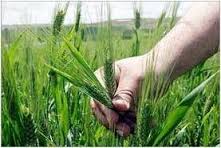Education programmes of job

Nature of work
A crop scientist works to increase the yield of field crops by improving farming methods and developing new plant strains. Scientists generally specialize in farming production or crop development. Some specialize in particular crops, such as grains or cotton. Others work in weed control. A crop scientist works as farmers, as inspectors, and as field representatives for food processors. He/she is also engaged in research or is self-employed as consultants to corporations, farmers, and farm cooperatives.A Crop science researcher works for government agencies, universities, and private companies, such as a seed supplier and a fertilizer manufacturer. Those who work for universities generally have teaching duties as well.
An inspection scientist works for the government or hold inspection and grading jobs with seed suppliers and producers of grain and similar products. This crop scientist is a quality control inspector who grades seed, grain, and produces according to government regulations.
A crop scientist also works as a field representative for food processing and distributing companies. As a field representative, he/she meets with farmers and farm cooperatives to set prices for their produce. A representative may also advises growers on ways to improve the amount they produce or the quality of their product.
Environment of work
Working conditions vary depending on the type of work involved. A farmer works outdoors most of the time. A researcher works in laboratories and on experimental farms. A field representative and a government inspector travel. They may work long and irregular hours Professional life
Crop scientists who do research can become project leaders. Some are eventually able to develop their own projects. A field representative for private companies may become a supervisors or managers in his/her company. A crop scientist who works for government agencies receives regular promotions by passing civil service tests. He/she may become the director of his/her agency.Employment opportunities for crop scientists are expected to grow more slowly than the average through the year 2012. Those without advanced degrees will face competition.
Range of typical starting salaries: 35000 SYP plus potential bonuses.
Getting the job
A candidate must have a bachelor's degree to become a crop scientist. An advanced degree in crop science is desirable for people interested in obtaining research positions, and a doctoral degree is generally required for a teaching job. Some colleges offer work-study programs that enable students to get practical experience.A candidate should visit the college placement office for assistance with job searches. He/she can contact through work-study programs or apply directly to private companies. Large companies often send recruiters to college campuses to find qualified employees. For a government job, he/she should apply to take the necessary civil service test.
Skills
Communication skills: Communication skills are critical for agricultural and food scientist. He/she must be able to explain his/her studies; what he/she was trying to learn, the methods he/she used, what he/she found, and what he/she thinks the implications are of his/her findings. He/she must also be able to communicate well when working with others, including technicians and student assistants.Critical-thinking skills: Agricultural and food scientist must use his/her expertise to determine the best way to answer a specific research question.
Data-analysis skills: Agricultural and food scientist, like other researchers, collects data using a variety of methods, including quantitative surveys. He/she must then apply standard data analysis techniques to understand the data and get the answers to the questions they are studying.
Decision-making skills: Agricultural and food scientists must use his/her experience to determine whether his/her findings will have an impact on the food supply, farms, and other agricultural products.
Observation skills: Agricultural and food scientist conducts experiments that require precise observation of samples and other data. Any mistake could lead to inconclusive or inaccurate results.
Sources and references
If a candidate needs any further information on what is included in this file, he/she can visit the following websites: www.crops.org, Crop Science Society ,
www.agronomy.org, American Society of Agronomy
Arab Standard Classification of Occupations, 2008, Ed. Arab Labor Organization.
Summary
A crop scientist studies agronomy, the science of crops and soils, and is expert in plant and soil science; he/she uses that knowledge to improve crop and agricultural production. Crop science includes using natural resources and conservation practices wisely to produce food, feed, fuel, fiber and pharmaceutical crops while preserving and improving the environment. Careers in crop science are available in business, government, educational and research institutions.
